The Problem with our “News” Media
In science, we have something called consensus. Scientific revolutions do happen. But there is also a lot of stability in science. Take physics for example. In previous posts, I have discussed the 3 big revolutions in physics that occurred in the 20th century – relativity, quantum mechanics, and chaos theory. They were indeed revolutionary. But not in the way people usually think of revolutions.
When most people think of a revolution, they think of a sweeping away of everything that came before. But even political revolutions aren’t really like this. A new regime has to deal with a lot of the same basic concerns – transportation, utilities, education, economic development, and so on. And in science, revolutions are often even less…well, revolutionary.

Take relativity for example. Yes, it has overturned Newtonian physics. Newton didn’t realize there was a cosmic speed limit. He thought an object would keep accelerating if you kept pushing it, indefinitely. If Newton had been right, we could, in principle, travel to Mars in a few minutes. But we can’t. We can’t outrun light. And light takes a minimum of about 3 minutes to travel from Earth to Mars.
But as a very good approximation, for the speeds of everyday life, Newtonian physics is a VERY GOOD approximation. For example, the earth circles the sun at a speed of about 67,000 miles per hour. That’s faster than any human has ever traveled, relative to the earth. But light speed is about 670 MILLION miles per hour. At 67,000 miles per hour, less than a ten thousandth of the speed of light, relativistic effects are quite negligible. With very modest acceleration, in space we could reach a speed of 67,000 miles per hour in a short time.
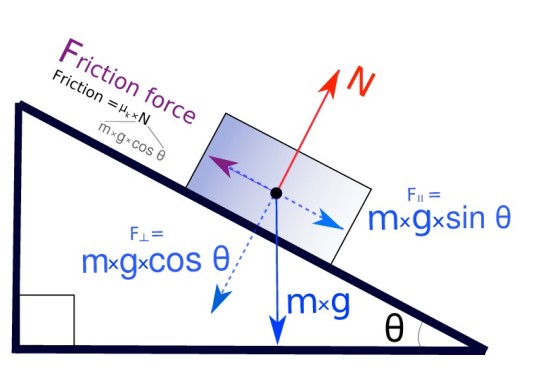
Considerations such as these are why Newtonian physics is still taught in school, even though it’s “wrong.” It still works very well, for most applications. In that sense, it isn’t “wrong.” And in retrospect, it couldn’t be, because Newtonian mechanics, over and over, had been shown to work very well in lots of situations. It made very good predictions, and still does. We just have to be careful about where we apply it.
My point is that if a theory makes very good predictions, well, that’s all we really ask of a theory. In my introductory post to this blog, I mentioned that if someone came along who could make very accurate, consistent predictions, even if he couldn’t explain WHY, science would face some very real and very stiff competition, and no scientist would question the value of it. That’s all we ask. Just make very good predictions.

When a theory makes good, consistent predictions, when it agrees with the evidence, we reach consensus in science. It’s a good theory. That doesn’t mean it is true with a capital T. But until something comes along that makes better predictions, it’s good. It’s what we call provisional truth. Truth with a small t. That’s all we ever have. The reason science can do this is because there are rules that every scientist, in a sense, signs onto. If you don’t play by the rules, you’ll never get consensus on whatever theory it is you’re advocating. And the most important rule is this: You have to have evidence to support your theory. NOT OPINION. EVIDENCE. And any argument built from that evidence has to be based on reason. The inspiration for a theory can come from anywhere – a dream, an inspiration, an intuition, anything. But the VALIDATION of the theory has to be based on reasoned argument, constructed from evidence.
Suppose I say, “Pigs can fly, when they want to.” The first thing a scientist will do is ask for evidence to support this. Of course, when no flying pigs are to be found, I can always say, “Well, the ones you watched didn’t want to at the time. You can’t PROVE that I’m wrong.” But in science, I’m not gonna get very far with this. I have no evidence to support my theory. Science demands evidence. Otherwise, we are faced with a virtually infinite number of theories about the world, and no way to falsify them. Maybe pigs are actually aliens in disguise. Maybe they’re all CIA agents. Maybe they’re protrusions into our dimension of vast hyper-intelligent pan-dimensional beings.
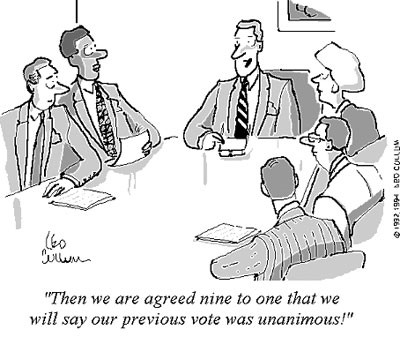
Notice that the rules of science say nothing about popularity. We don’t take a poll of scientists to see if they like the theory, and build consensus from that. The consensus comes LATER, after the evidence has been examined and the reasoned arguments have been made. And this is one big difference between science and politics. Politics is all about persuasion. Ultimately, it doesn’t matter HOW you persuade. The bottom line is popularity. Democracy carries with it an assumption – that large numbers of people will make good decisions. And this in turn carries with it a more fundamental assumption – that large numbers of people are well-informed and educated.
In a democracy, there is (in theory at least), something called the public square – a place where people gather to make their arguments about public life. It’s vital. Making good decisions requires deliberation. Most Americans today get their information about the world from commercial television. People often complain that this or that media outlet is biased in one way or another. But really, this overlooks the more pervasive problem.

Imagine that you’re married, and you’re trying to do some financial planning with your spouse. But you have a time limit, say half an hour. And even within that half an hour, you are interrupted every 5 minutes with a series of commercials. Fundamentally, commercial television is not about information or deliberation. It’s about entertainment. So called “news” is no different. What entertains? What entertains are conflict and drama.
Careful deliberation and reasoned arguments simply do not entertain. If they did, scientific conferences would be all the rage on commercial television. But careful deliberation and reasoned arguments are essential for good decision-making. The entertainment imperative simply has no place in the public square. The need for conflict rather than reason is incompatible with the needs of democracy. Commercial television “news” is full of talking heads, endlessly arguing with each other, often yelling over each other, yielding very little of substance.
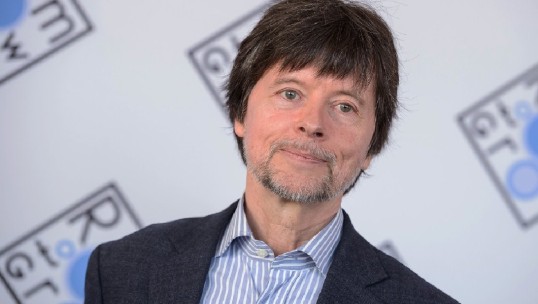
Last year, a group of historians published an open letter to the American people. In it, they pointed out that, “Donald Trump’s candidacy is the latest chapter in a troubled narrative many decades in the making. In another era, civil society institutions such as the academy, the free press and the judiciary were counted on to safeguard constitutional democracy. That this is no longer the case cannot be blamed solely on Trump. Donald Trump’s candidacy has profited from the fears of people living precariously and a political culture of spectacle and cynicism, both of which long predate his emergence as a candidate.”
But even with all of this, our public square might be salvageable, were it not for something very basic and hard to crack. Public television (and public radio), for example, is considerably more deliberative than commercial television. Surveys indicate that Americans who rely on public television are among the best informed about the world. Very few Americans bother to watch public television, but even if most Americans did tune in, there is a pervasive and profound problem with public television, as with all of our public media. That problem is false equivalence.
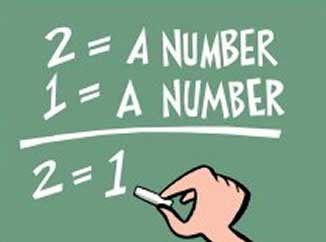
In 2008, historian Robert Weible wrote, “If we have learned nothing else in recent years, it is that history is very powerful and can be dangerous in the wrong hands, whether in local communities or the nation’s capital. It seems that in an idealized marketplace in which everyone is his or her own expert and all ideas are equal, self-proclaimed champions of democracy can legitimize their potentially unlimited authority, not by grounding their truth in objective, scientifically determined facts, but by concocting and selling self-serving histories that play on public fears, prejudices, and greed.”
False equivalence says that everything is just somebody’s opinion. The irony of our media is that the problem isn’t bias. In a way, it’s the opposite of bias – a need for “balance.” We see this all the time in public broadcasting. Opposing viewpoints are presented, and in the process, nothing gets resolved. We never get to the MEAT of the arguments being made.

Suppose you and I are discussing crime. You say we need to invest more in prisons. I say we need to invest more in education. But notice something. We haven’t even come to an understanding yet about the basic facts concerning crime. Has crime been increasing or decreasing? What is the historical relationship between incarceration and crime rates? Is there a correlation between education levels and crime rates? There are basic facts that come into play here. IF WE DON’T EVEN AGREE ON THE FACTS, THERE IS NO POINT TO THE REST OF THE DISCUSSION. We will be talking across purposes.
But false equivalence says there are no facts. Only opinions. If you can persuade, by whatever means, that’s all that matters. So nothing ever gets resolved. We have endless discussions, often with people talking across purposes, never getting to the meat of the issues. The meat is called evidence. WHAT IS YOUR EVIDENCE FOR YOUR ARGUMENT? That is the first question that should come up in any political discussion.

There is such a thing as real life, with real people who deal with real consequences. If you doubt it, talk to someone who has been diagnosed with cancer, or lives in a travel trailer (I have). It’s easy to say, “Everything is just someone’s opinion,” when you have a secure income and live in a bubble with other politicos, pundits, and media personalities. The anger that many Americans feel toward the “elite” has everything to do with the ongoing failure of the political class to deliver real-life results to ordinary people, while they argue endlessly with each other about issues that often have little practical consequence.
Don’t get me wrong. We still have independent new media in America, journalists and editors who are fearless, who are willing to speak truth to power. But that’s not enough. Political opinions, first and foremost, have to be grounded in reality. George Orwell said, “Political language…is designed to make lies sound truthful and murder respectable, and give an appearance of solidity to pure wind.” Everyone is entitled to their own opinion. Everyone is not entitled to their own facts. It doesn’t matter what your political stripe is. Everyone should be able to agree on facts.
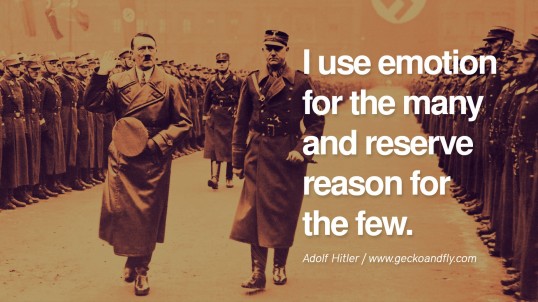
Let me quote historian Robert Weible again: “Consider for a moment that most historians know that the Founding Fathers were more influenced by the Enlightenment than by the Bible, that the Holocaust really happened, and that Saddam Hussein never planned the attacks of September 11th. There are, of course, lots of people who understand things differently. Why? Possibly because they are influenced by those who interpret the past more loudly—if less rationally—than others, often on radio, television, and the internet, or in churches, bars, and political campaigns.”
Scientists, like historians, reach consensus. Consensus occurs in science because scientists follow rules. Evidence. Reason. Consensus was once the norm in our news media too, at least when it came to facts. But the entertainment imperative and the more fundamental problem of false equivalence have led us to a very dangerous point. Many in the media now recognize the problem, but few seem to realize how much effort, after years of neglect, will now be required to correct the problem.

Eventually, reality does intrude. But the irony is that in our age of almost instantaneous communication and rapid technological change, social progress is often glacial in speed. The reason is our media, which insulates us from that pesky thing called reality with spectacle and endless opinionating.
